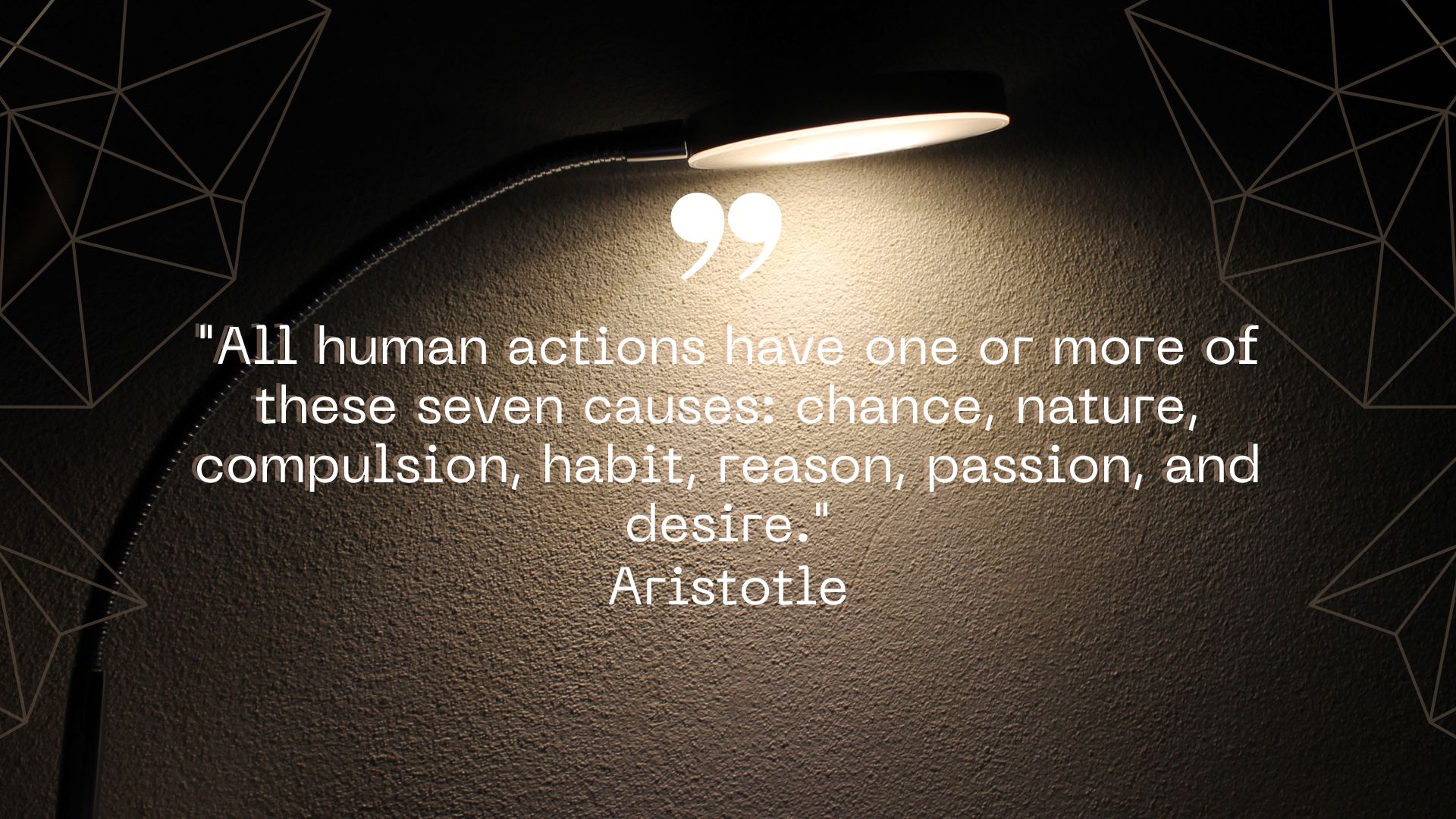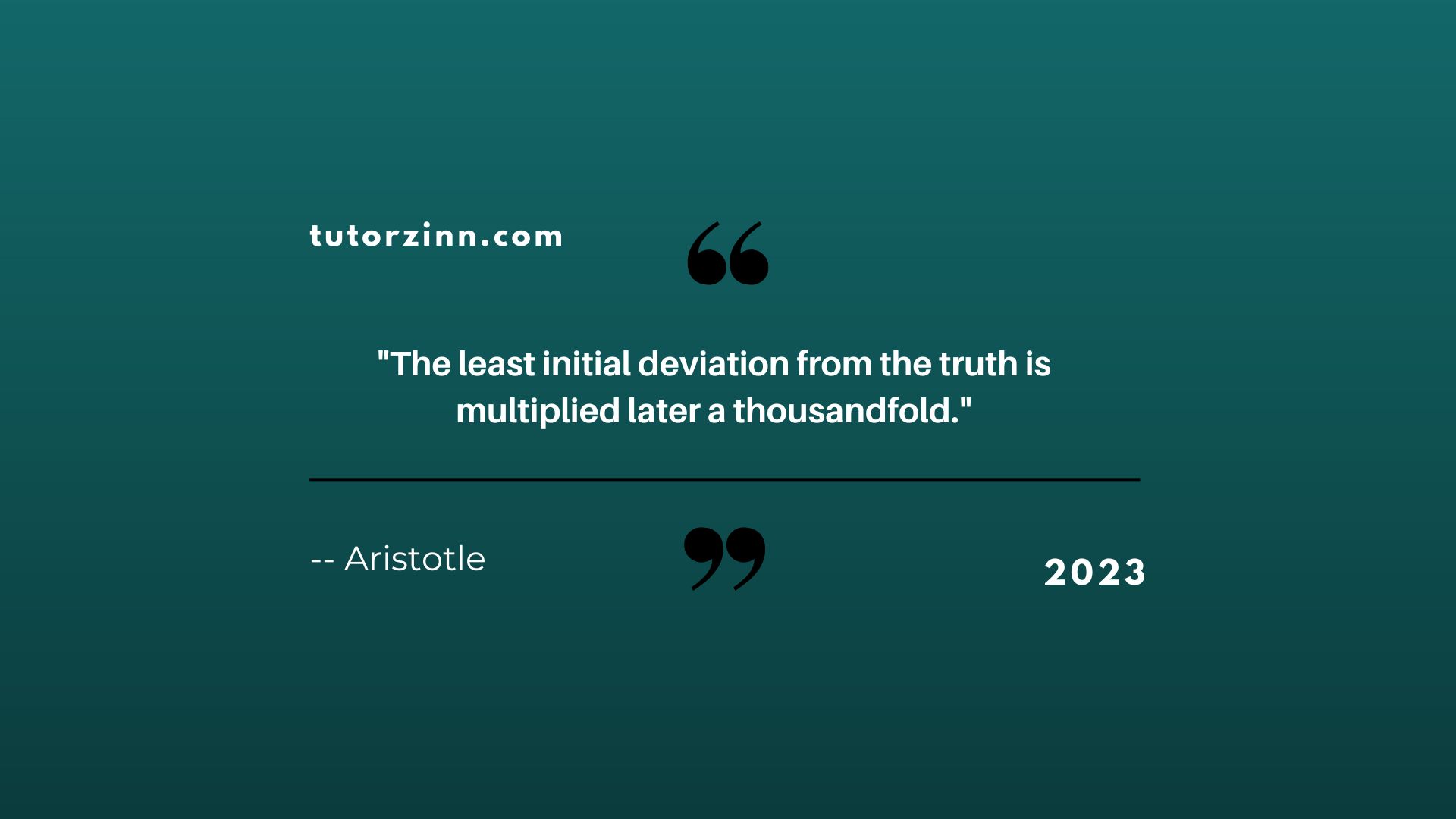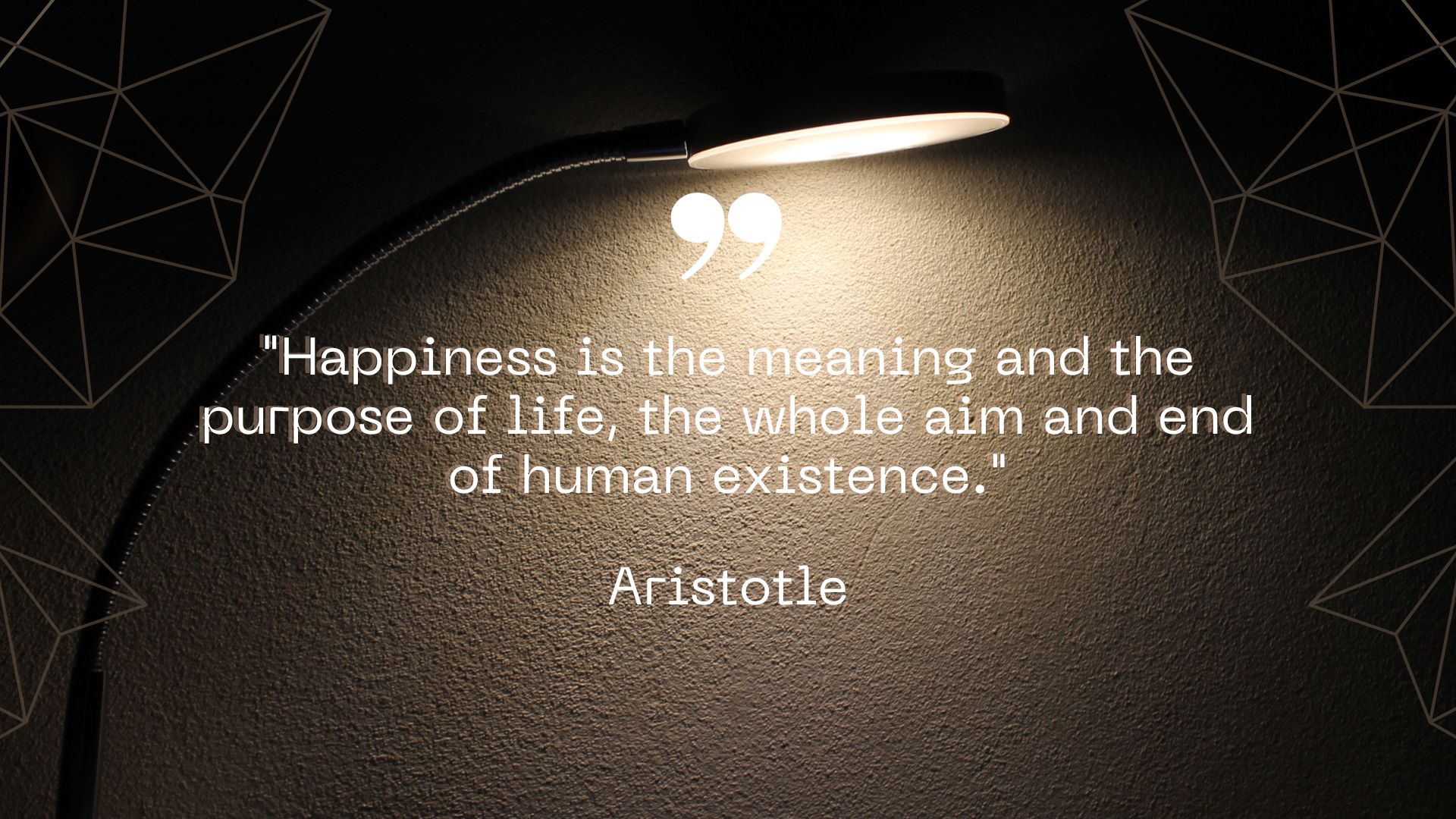“All human actions have one or more of these seven causes: chance, nature, compulsion, habit, reason, passion, and desire.”
Aristotle–
Aristotle, one of the most influential philosophers in history, postulated that the complexities of human behavior are not arbitrary but can be attributed to a set of fundamental causes. He outlined these causes in his philosophy, emphasizing that every human action is influenced by one or more of these seven causes. These causes provide a framework for understanding the underlying motivations behind our behaviors, shedding light on the intricacies of human nature.
- Chance: Chance refers to unforeseen and random events that can significantly impact human actions. While not within our control, chance occurrences can shape decisions and outcomes. These unexpected events can lead individuals to make choices they otherwise wouldn’t have.
- Nature: Human actions are often driven by innate tendencies and biological factors. Our genetic makeup, instincts, and evolutionary history contribute to shaping our behaviors. Nature lays the foundation for a wide range of human actions, from survival instincts to social behaviors.
- Compulsion: Compulsion pertains to actions driven by external forces or pressures, often beyond an individual’s control. Societal norms, laws, and obligations can compel people to act in specific ways, even if those actions don’t align with their personal desires or beliefs.
- Habit: Habitual actions are a result of repeated behaviors that become ingrained over time. People tend to default to familiar patterns and routines, which can influence their decisions and actions. Habits, whether positive or negative, play a significant role in shaping everyday behaviors.
- Reason: Reason reflects the cognitive and logical aspect of human actions. Rational decisions are based on careful analysis, critical thinking, and weighing pros and cons. Aristotle believed that reason distinguishes humans from other animals and is a driving force behind deliberate actions.
- Passion: Passion refers to intense emotions and feelings that can drive individuals to act in ways that may not always align with reason. Love, anger, joy, and other emotions can play a powerful role in shaping human actions, sometimes leading to impulsive or fervent behaviors.
- Desire: Desires represent personal wants and cravings that influence decision-making. Whether it’s pursuing material possessions, achieving goals, or fulfilling emotional needs, desires have a profound impact on the choices people make and the actions they take.




